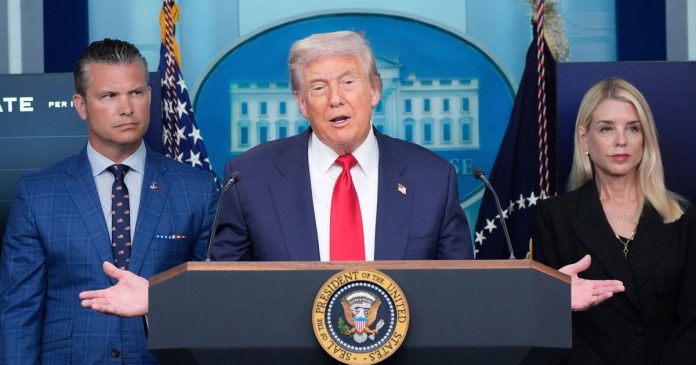The meeting between the Russian and US leaders in Alaska has pushed all other issues and problems into the background for Europeans.
Expectations and demands of Europeans
Left on the sidelines, politicians in Brussels and European capitals are holding endless consultations, hoping to influence Trump before the summit. The deadline is set for Wednesday. First, internal online discussions will be held between the leaders of Germany, Finland, France, the UK, Italy and Poland, with the participation of the head of the European Commission, the NATO Secretary General and Ukrainian president Volodymyr Zelensky. Then, the same participants will talk to Trump and Vice President JD Vance.
Announcing a telephone conversation with Trump, German Chancellor Friedrich Merz said that topics for discussion would include “options for putting pressure on Russia, possible peace talks, territorial claims and guarantees.” And then Berlin, London and Paris will hold discussions in the format of a “coalition of the willing” — those countries that until recently were eager to send their soldiers to Ukraine. At present, this coalition is hardly effective, despite its bellicose statements; in reality, few are willing to send troops to Ukraine.
The Europeans’ demands are clear. They want Zelensky, in accordance with the hackneyed formula “no mention of Ukraine without Ukraine,” to join the negotiations between Russia and the US. In this regard, Trump has already made it clear that the Ukrainian president is not welcome in Alaska, but Washington will call Kyiv and inform it of the summit’s results.
Otherwise, the EU’s rhetoric repeats familiar themes: preserving Ukraine’s territorial integrity, “protecting the security interests” of Kyiv and Europe, continuing political, economic and military assistance, and supporting Ukraine on its path to EU membership. European leaders are demanding that Russia first agree to a ceasefire, after which some kind of negotiations can take place.
Hungary’s protest
Meanwhile, Hungary refused to join the joint statement by European leaders. Budapest has indicated that it does not feel offended by the fact that the talks in Alaska are taking place without the participation of European representatives. “The US-Russian agreement is the best chance for peace,” Foreign Minister Péter Szijjártó said. “The other EU countries are trying to sabotage the meeting.”
There is little leverage on the situation ahead of the summit in Brussels. It is unlikely that it will be able to offer Trump anything more than humiliating concessions in the tariff dispute and new purchases of American weapons with European taxpayers’ money. But it can prevent the implementation of any agreements that may be reached in Alaska.
New sanctions for Russia
Following an emergency meeting of EU foreign ministers on Monday, European diplomacy chief Kaja Kallas said that the European Union is working on another, 19th package of sanctions against Russia.
“Since Russia has not agreed to a complete and unconditional ceasefire, we should not even discuss any concessions,” she said. “The sequence of steps is important,” Kallas noted.
“First, an unconditional ceasefire with a reliable monitoring system and binding security guarantees.” In addition, Brussels is “working to strengthen military support for Ukraine, as well as support for Ukraine’s budgetary needs and its EU accession process.” The Europeans plan to cover these budgetary needs with frozen Russian assets. Three payments from the proceeds of frozen assets have already been sent to Kyiv.
Meanwhile, POLITICO cites data from the Kiel Institute that Europe is currently providing Ukraine with much more military and financial aid than the US. This is precisely what Brussels’ confidence is based on, that the EU allegedly has influence and is capable of putting pressure on the US.
The Europeans will play their destructive role after the summit in Alaska. Together with Zelensky, they might do everything to ensure that real peace initiatives are stifled and that the agreements between the Russian and US presidents encounter “insurmountable” difficulties created by Kyiv, London and Brussels. They do not want peace in Ukraine, and they will resort to any provocation to achieve this.
Kyiv’s position
Meanwhile, the Ukrainian leader stressed his country’s readiness for an unconditional ceasefire. According to him, the Kremlin’s goal is to drive a wedge between the US, Ukraine and European allies by putting forward deliberately unacceptable demands and then blaming Kyiv for the failure of the negotiations.
JD Vance said Washington was trying to organise a trilateral meeting between Trump, Putin and Zelensky, but acknowledged that this would not be easy. Zelensky, for his part, noted that he appreciates “Trump’s determination to end the killings,” but sees the main reason for the war in “Putin’s desire to wage war and manipulate everyone he comes into contact with.”
Earlier, the US Federal Aviation Administration announced that the skies over Anchorage would be closed on August 15-16 due to the arrival of Putin and Trump.
